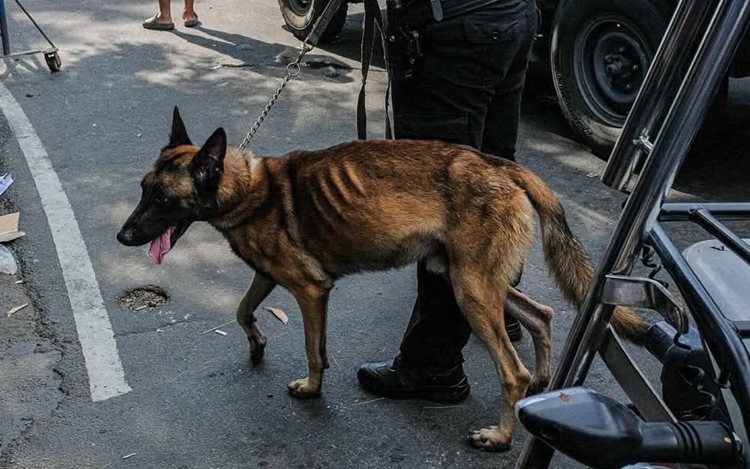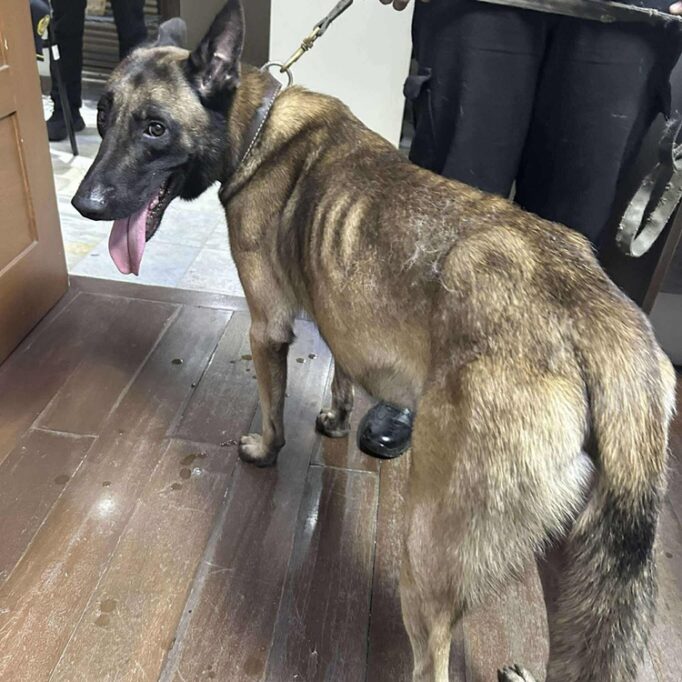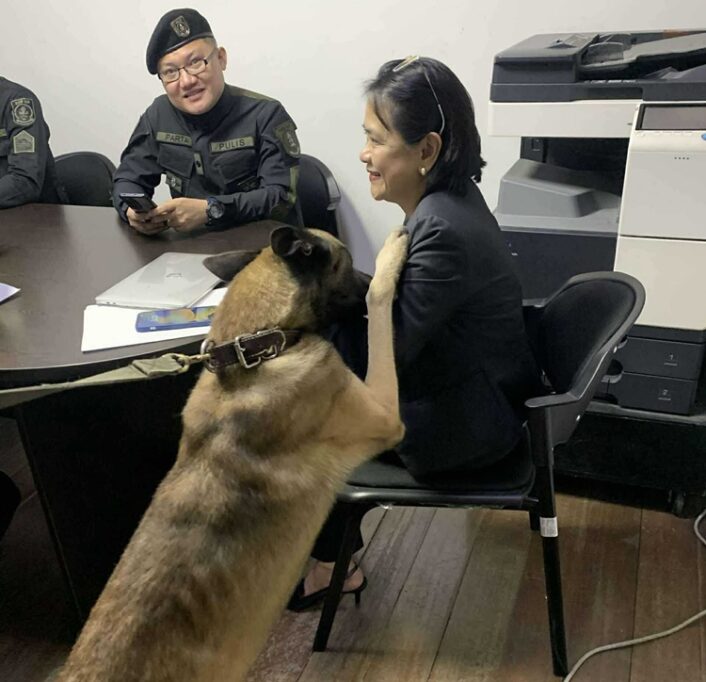Rehabilitation for PNP K9 Dog Kobe
KOBE – A Belgian Malinois working with the Philippine National Police’s Regional Explosive and Canine Unit–NCR will undergo rehabilitation after a viral photo sparked public concern about his health.
The image, taken during an explosive detection operation in Manila, showed Kobe looking noticeably thin, with his ribs visibly outlined. This led many netizens to question whether he was receiving proper care and prompted discussions about the treatment of working animals, particularly those serving in law enforcement.
The Animal Kingdom Foundation (AKF), an animal welfare group, responded by stating that service animals like Kobe have the right to proper nutrition, care, and medical attention, as outlined in the Animal Welfare Act (RA 8485, as amended by RA 10631). The organization emphasized that K9 dogs are also heroes and deserve to be treated with dignity and respect. They called for transparency and accountability from the authorities involved.

In response, the Regional Explosive and Canine Unit–NCR clarified that Kobe is in good health. According to the unit, he had recently completed a 15-day refresher training from May 26 to June 13, which may have contributed to his slimmer appearance. They assured the public that his vaccinations are up to date, his lab results are normal, and he is receiving proper nutrition.

As a precaution and part of his continued care, Kobe will undergo a two- to three-month rehabilitation period before returning to active duty. During this time, his condition will be closely monitored to ensure full recovery. AKF confirmed it will work with authorities to oversee Kobe’s progress and to advocate for improved care systems for all working animals.

Meanwhile, K9 dogs like Kobe play a crucial role not only in security but also in detecting bombs and illegal drugs, as well as assisting in search and rescue missions. Due to the physical and mental demands of their work, they require proper rest, nutrition, and regular veterinary checkups.
